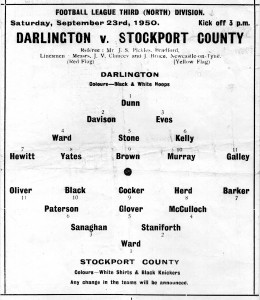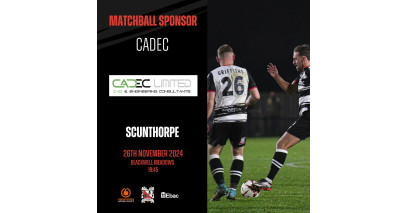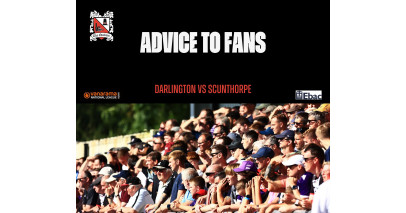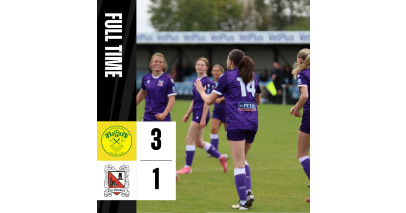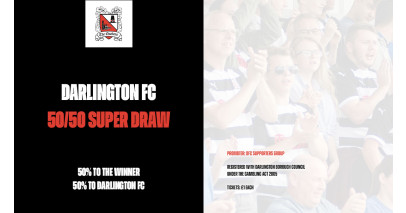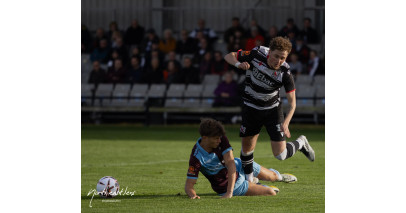Memory Match -- Stockport 1950
By Ray Simpson

Simon Weatherill continues his Memory Match series with the home game against Stockport County on Se...
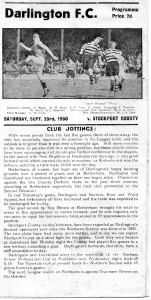
Simon Weatherill continues his Memory Match series with the home game against Stockport County on September 23rd 1950.
There would be two additional home games played at Feethams in the 1950/51 season. The Football League had decided to increase the size of the Third Divisions North and South by two clubs each, from 22 to 24 teams thus increasing the Football League family to 92 clubs. 20 clubs applied for the four new places on offer. The Southern section was quite straightforward as Gillingham and Colchester won the ballot. The Northern section was a bit more complicated. Shrewsbury won the ballot, but Wigan and Workington tied for second place with 19 votes each, so would have to enter a second ballot with Scunthorpe (17 votes) and Nelson (11). Somehow Scunthorpe managed to win the most votes and took their place in Division 3N, even though they were 4th choice in the first ballot! Neither of the two new clubs enjoyed their first ever visits to Feethams. Shrewsbury were beaten 2-1 at the beginning of September and Scunthorpe suffered a 3-2 defeat later in the season.
Darlington prepared for the 50/51 season by releasing the purse strings. Manager George Irwin was allowed to sign eight new players and spend “a considerable sum of money” in transfer fees, money that had been generated by the sale of goalkeeper Ray Wood to Manchester United in the previous December. The club kicked off the new season with 23 professionals, up from 17 the previous year. Of the eight new men, only four went on to make any real impact at the club. Centre half Geoff Stone was signed from Notts County and made the position his own until an ankle injury cut short his season in March. Ron Hewitt, an outside right signed from Wolves and Harry Yates, an inside right from Huddersfield were both regulars throughout the season and Ken Murray, an inside left signed from Bishop Auckland became a regular at the club over the following three seasons.
The new look team didn’t start the season well though and lost their first four games. Things picked up slightly in September with three wins and a draw from their next five games so that when Stockport County visited Feethams on September 23rd the Quakers had lifted themselves away from the foot of the table and sat seventh from bottom with seven points. Stockport were challenging at the top of the table with 12 points and had recently had a run of four consecutive wins without conceding a goal. They would provide tough opposition for the Quakers and in particular their strong defence would be a challenge for home centre forward Roy Brown, who had scored seven goals in his five games so far. The Quakers were unchanged after an excellent 1-0 away win at high flying Rotherham the previous Saturday. Joe Davison, John Eves and Tommy Ward had all been injured during the game but had recovered to face County.
Stockport began the game in confident mood and had the better of the opening exchanges. Fast, accurate passing by the visiting forwards kept play in the Darlington half for long periods and it was quite surprising that their first half dominance resulted in only one goal, scored by Black. The Darlington defence took great credit in keeping the score down to 1-0. Centre half Stone and half backs Ward and Kelly worked hard against experienced opponents to protect goalkeeper Dunn who didn’t have a great deal to do. The second half saw a complete turnaround in fortunes with Darlington taking control. Right half Ward was man of the match with his prompting and probing bringing his forwards more into the game. Brown was a lively leader but was closely marked throughout and his shooting chances were very limited. Hewitt and Yates combined well down the right to continually give the visiting defence a hard time. The equaliser though, scored on 52 minutes, was created down the left wing, Gordon Galley crossing for Ken Murray to head his first ever goal for the club.
Stockport’s left back Sanaghan suffered an injury 20 minutes from the end and had to see out the game on the left wing. This upset Stockport’s play but by now the Quakers were well on top and deserved their win which was clinched in the 77th minute when Galley fired home after a goalmouth scramble, his first Quakers goal as well. The home side also effectively finished with ten men when Murray was injured and also finished on the left wing. No substitutes in those days, so injured players just had to hobble about as best as they could to provide nuisance value to the opposition, usually out on the wing.
The 2-1 win, gained in front of a crowd of 7403, was Darlington’s third win on the trot and their first against Stockport since the war. It lifted the Quakers to 15th in the table but they never really got any higher. Inconsistency throughout the season meant that they spent most of the season in the bottom half of the table, but always comfortably clear of the bottom two re-election places. They eventually finished in 18th place with 39 points. The club closed the season with two special friendlies, held to celebrate the Festival of Britain. The majority of Football League Clubs were involved and welcomed visitors from Scotland, Ireland or the continent, and Darlington hosted Irish sides Shelbourne (who won 2-0) and Limerick (who were soundly beaten 5-0).
The programme for the 50/51 season consisted of a large single sheet of paper, measuring 15” x 10”, which was folded into three, effectively creating six pages. It was priced 2d and was printed by Mawers. The front page carried Club Jottings, which discussed what had been happening around the club, and an action photo from a previous game. The inside spread of three pages gave the fixtures for the first team and the reserves (playing in the North Eastern League) and the team line ups, and the rear two pages consisted of the half time scoreboard and a full page advert for cheap rail travel. (Blackpool illuminations for 13s 9d anyone?)
Team v Stockport : 1 Billy Dunn 2 Joe Davison 3 John Eves 4 Tommy Ward 5 Geoff Stone 6 Tom Kelly 7 Ron Hewitt 8 Harry Yates 9 Roy Brown 10 Ken Murray 11 Gordon Galley.



